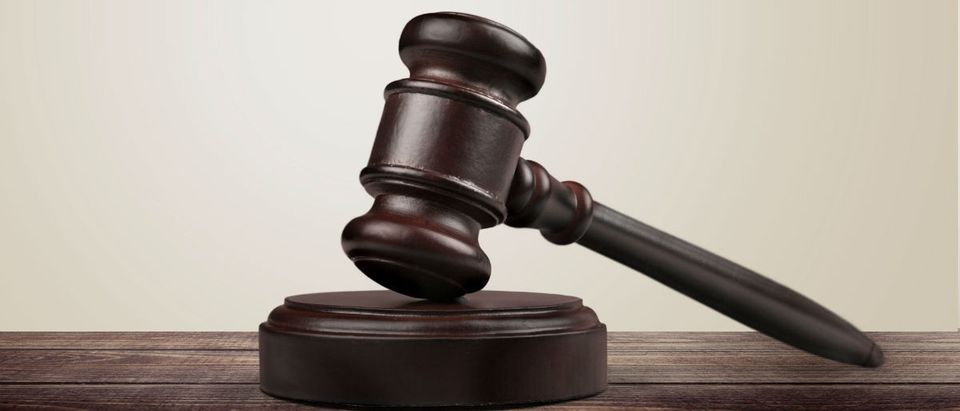Rep. Bob Goodlatte (R-Va.) is in a prime position to make history.
Goodlatte, who represents Virginia’s 6th congressional district, is chairman of the powerful House Judiciary Committee, a body with broad jurisdiction over the administration of justice in federal courts, administrative bodies, and law enforcement agencies. Congruent to the committee’s mandate is the House’s exclusive power to initiate impeachment proceedings against federal officials having committed “high crimes and misdemeanors” under Article II, Section 4 and judges running afoul the “good behaviour” requirement of Article III, Section 1 of the Constitution.
Given the scandalously wrong decisions from judges in the Ninth and Fourth Circuits over Trump’s recent executive order on immigration (I will not rehash here why these decisions are wrong—mostly because legal scholars surpassing my acumen have already done so here, here, here, and here), Goodlatte should consider dusting off his impeachment authority to remind these inferior courts of their constitutional role.
When a court hands down a poor decision, the judiciary’s sister branches have several tools at their disposal to check judicial power.
The first falls under the prerogative of the executive. The president, goes the argument, has a duty not to enforce laws and holdings he views as unconstitutional. Favored by some—but not all—conservatives, this approach enjoys credibility by way of President Abraham Lincoln, who refused follow Chief Justice Roger Taney’s decision in Ex parte Merryman that denied the executive’s authority to suspend the writ of habeas corpus while Congress was in recess.
Such a strategy today would wreak havoc on the rule of law. First, it consolidates near-absolute power in a single person with control over all law enforcement—the Founders’ worst nightmare. Second, it leaves innocent litigants downstream without a legal compass; a litigant successful under the law would find no relief and be without recourse. Finally, Lincoln’s case is hardly a fitting model, as Ex parte Merryman was decided during a time of unprecedented domestic insurrection (the Confederate Army of the Potomac stood literally just across the river from the White House). No president should be expected to follow the Supreme Court’s word at the cost of the Union—or as Lincoln put it, “[A]re all the laws, but one, to go unexecuted, and the government itself go to pieces, lest that one be violated?”
Instead, in a time of relative peace, it makes sense to look to Congress for judicial accountability. Not only is this what the Founders wanted, it complements Congress’s existing and largely uncontested relationship with the courts.
Outside of its exclusive power to impeach, for example, Congress has sole discretion over the scope of the judicial power’s appellate jurisdiction. It can unquestionably abolish inferior courts entirely, control the judiciary’s budget, and set the compensation amount for judges. It can also establish rules of civil procedure, criminal procedure, appellate procedure, rules of evidence, and sentencing guidelines. Additionally, it is the most deliberative governmental body, critically sensitive and directly accountable to the public’s demands.
The central objection is obvious: impeachment is susceptible to abuse. Congress’s power to impeach is, after all, plenary—grounds for impeachment are whatever Congress wishes them to be, simply because there is no forum for appeal after conviction by the Senate.
Fortunately, there are multiple safeguards which protect against such abuse. The first is the cumbersomeness of the impeachment process itself. Impeachment and conviction require a simple majority vote in the House and a two-thirds vote in the Senate, respectively. Second is the sovereignty of the people—a Congress which abuses its power and paralyzes the judiciary will face substantial backlash in subsequent elections. Third, even if Congress resolves to defy its constituents and miraculously escapes electoral retribution, the people have recourse through Article V and can amend the Constitution by a convention of the states. Finally, in the interim, litigants can often find relief for federally-created causes of action in state courts—which are beyond the reach of Congress’s impeachment power—assuming Congress has not implicitly or explicitly made federal jurisdiction exclusive over the cause of action in question.
The federal judiciary’s hubris has reached dangerous levels. From issuing decisions void of any constitutional foundation to explicitly calling for judges to ignore the Constitution’s text, it is clear perpetual impunity has transformed judges from arbiters of justice bound by the Constitution to supremely powerful extensions of the political branches. Constitutionally-minded Americans cannot afford to hope future judges will reverse course—stare decisis forbids it, and, of course, the fox cannot guard the hen house.
Pride goeth before impeachment; the time is right to restore Congress’s constitutional stature and halt the march toward judicial oligarchy. Bob Goodlatte has his work cut out for him.
Thomas Wheatley is a writer living in Arlington, Virginia and a regular contributor to The Washington Post. Follow him on Twitter @TNWheatley.


